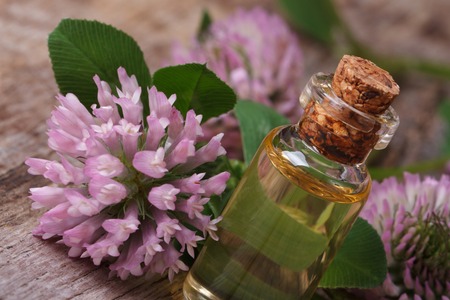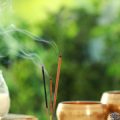Introduction to Aromatherapy and Essential Oils in the UK
In recent years, aromatherapy and the use of essential oils have experienced a remarkable surge in popularity across the United Kingdom, particularly as natural solutions for sleep difficulties. While these fragrant plant extracts have ancient roots—drawing on traditions from Chinese medicine and European herbalism—their appeal has grown substantially among modern Britons seeking holistic approaches to wellbeing. From bustling London boroughs to tranquil countryside villages, more people are turning away from synthetic remedies and embracing nature’s soothing gifts to support restful sleep. This growing interest is not simply a passing trend; it reflects a broader cultural movement towards integrating time-honoured practices with contemporary lifestyles. Essential oils such as lavender, chamomile, and bergamot now hold pride of place on British bedside tables, offering gentle, aromatic relief from sleepless nights. As we explore the role of aromatherapy in British society today, it becomes clear that these natural aids are valued not only for their calming effects but also for their ability to harmonise mind, body, and spirit—a philosophy at the very heart of both traditional Chinese medicine and Britain’s evolving wellness culture.
2. The British Approach: Tradition Meets Modern Wellness
Britain has a long-standing relationship with herbal remedies, many of which have been passed down through generations and are deeply woven into the fabric of daily life. In recent years, this heritage has found new expression in the growing popularity of essential oils and aromatherapy as part of a holistic approach to sleep and wellbeing. Modern British wellness trends often draw inspiration from traditional herbal knowledge while adapting to contemporary lifestyles.
One key aspect of the British approach is the integration of native plants and herbs, such as lavender, chamomile, and valerian root, each renowned for their calming and sleep-promoting properties. Lavender, for example, has historically been used in English gardens not just for its scent but also for its reputed ability to soothe nerves and aid restful sleep. Today, lavender essential oil is a staple in many British households, diffused at bedtime or added to pillow sprays.
Traditional vs. Modern Uses of Local British Herbs
| Herb | Traditional Use | Modern Aromatherapy Application |
|---|---|---|
| Lavender | Stuffed in sachets or pillows for calming effects | Used as essential oil in diffusers or sprays for relaxation |
| Chamomile | Brewed as tea to ease insomnia and anxiety | Blended as essential oil for massage or bath rituals |
| Valerian Root | Taken as tincture to promote deep sleep | Extracted for use in calming blends with other oils |
| Lemon Balm (Melissa) | Infused in hot drinks to calm the mind | Added to oil blends for stress relief before bedtime |
Cultural Attitudes Toward Natural Sleep Aids
The British public generally values gentle, natural solutions that align with a philosophy of balance and moderation—principles that resonate with both traditional herbalism and modern holistic health practices. While scientific validation is increasingly sought after, there remains an appreciation for time-honoured methods passed down from family members or local practitioners. This blend of respect for tradition and openness to innovation helps shape a uniquely British perspective on using essential oils as natural sleep aids.
In summary, the convergence of heritage wisdom and contemporary wellbeing movements has led to a renewed interest in essential oils among those seeking restorative sleep. By honouring local herbs and embracing both ancient and modern practices, Britons continue to cultivate a mindful approach to nightly rest.
![]()
3. Popular Essential Oils for Better Sleep
When it comes to natural sleep aids, certain essential oils enjoy particular popularity in the UK, both for their rich local heritage and their efficacy. Lavender, especially from the rolling fields of English farms in Norfolk and the Cotswolds, is perhaps the best-known British favourite. Its gentle floral aroma is widely recognised in Western aromatherapy for its calming and sedative effects, making it a staple in many bedtime routines. From a Traditional Chinese Medicine (TCM) perspective, lavender is thought to help soothe the Shen—calming the spirit and harmonising the heart-mind connection, which is essential for restful sleep.
Roman chamomile is another much-loved oil across Britain. With roots tracing back to ancient herbal traditions, Roman chamomile’s sweet, apple-like scent is known for its ability to ease tension and quieten anxious thoughts. Western perspectives praise it for reducing restlessness and promoting relaxation. In Chinese medicine terms, Roman chamomile gently disperses stagnation and supports the smooth flow of Qi (vital energy), thus helping to release emotional blockages that might disturb sleep.
Other notable oils include clary sage, with its subtle earthy fragrance, which both British herbalists and TCM practitioners recommend for balancing hormonal fluctuations that can disrupt sleep, especially in women. Clary sage is believed to nourish yin energy—essential for cooling the mind at night—whilst also encouraging emotional steadiness.
The blending of these oils often reflects a uniquely British sensibility: integrating native ingredients with time-honoured wisdom from both East and West. Whether used alone or in combination, these essential oils offer more than just pleasant scents; they form part of a holistic approach to sleep that honours both scientific research and traditional philosophies of balance and harmony.
4. Methods of Use: British Home Practices
Within the UK, the tradition of utilising essential oils for sleep and relaxation is deeply intertwined with a broader culture of wellbeing and self-care. British homes have adopted several safe and effective methods to harness the benefits of aromatherapy, drawing from both time-honoured customs and modern innovations. Below, we explore some of the most popular practices embraced by the British public.
Diffusers: Modern Comfort with Ancient Roots
Aromatic diffusers are now a staple in many British households, serving as a gentle means to disperse essential oils throughout living spaces. Ultrasonic diffusers, which use water and vibrations to release a fine mist, are particularly popular for their safety and efficacy. Traditionally, simple bowls of hot water with a few drops of oil—such as lavender or chamomile—were used in bedrooms before sleep, demonstrating how old and new approaches coexist.
Pillow Sprays: A Touch of Tranquillity
Pillow sprays infused with essential oils offer a subtle yet effective way to create a calming bedtime environment. These blends, often featuring English lavender, clary sage, or sweet marjoram, are lightly spritzed onto bedding before sleep. This simple ritual aligns well with the British appreciation for understated elegance and nightly routines that promote restfulness.
Bath Rituals: Immersive Relaxation
The evening bath is an enduring aspect of British self-care tradition. Adding a few drops of essential oil—diluted in a carrier such as milk or bath salts—transforms a routine soak into an aromatic sanctuary. Oils like Roman chamomile or bergamot are frequently chosen for their soothing qualities, supporting both physical relaxation and emotional balance in line with holistic health philosophies.
Common Methods Used in British Homes
| Method | Essential Oils Commonly Used | Benefits |
|---|---|---|
| Diffuser | Lavender, Chamomile, Cedarwood | Cleanses air, promotes restful sleep |
| Pillow Spray | Lavender, Clary Sage | Encourages relaxation at bedtime |
| Bath Rituals | Bergamot, Roman Chamomile | Eases tension, calms mind and body |
Infusing Tradition with Wellbeing Wisdom
The integration of these methods reflects not only an affinity for natural remedies but also an understanding of the interconnectedness between body and mind—a core tenet in both traditional Chinese medicine and contemporary British wellness culture. By thoughtfully incorporating aromatherapy into daily routines, individuals across the UK are cultivating healthier sleep habits while honouring longstanding traditions of comfort and harmony within the home.
5. Holistic Sleep Hygiene: Mind-Body Balance
When we consider the pursuit of restful sleep, it is essential to look beyond the mere act of drifting off at night and instead embrace a holistic approach that honours both mind and body. In traditional Chinese medicine, sleep is viewed as a dynamic interplay between yin and yang energies—a dance of balance where harmony within leads to tranquillity without. This philosophy finds a kindred spirit in the British tradition of valuing calm evenings and gentle rituals, such as winding down with a cup of herbal tea or reading by lamplight.
Essential oils serve as a bridge between these two worlds. When used thoughtfully, oils like lavender or chamomile can complement mindful practices rooted in Chinese wisdom, such as evening meditation or simple breathing exercises to soothe the shen (spirit). The practice of diffusing calming scents before bed dovetails beautifully with the British appreciation for serenity at home, allowing one’s bedroom to become a sanctuary reminiscent of both an English cottage and a tranquil Eastern retreat.
Creating a bedtime ritual that integrates essential oils with other holistic habits—like gentle stretching, soft music, or journaling—helps reinforce the body’s natural circadian rhythms. These daily acts signal to the mind that it is time to transition into rest, echoing the Chinese concept of “living in accordance with nature.” For Britons especially, the ritualistic element—be it a nightly bath infused with essential oils or simply pausing for gratitude—cultivates presence and deepens relaxation.
Ultimately, by weaving together aromatherapy and mindful routines, we nurture not only our physical bodies but also foster emotional equilibrium. In this way, the wisdom of East meets West: essential oils become more than just fragrant companions; they are catalysts for restoring balance within our modern lives, guiding us gently towards restorative sleep.
6. Safety, Sensitivities, and British Regulations
When turning to essential oils and aromatherapy for improved sleep, it is vital to approach their use with mindfulness and care. While these natural remedies are celebrated for their gentle support of the body’s own rhythms, individual sensitivities must be respected. Essential oils are potent plant extracts; even a few drops can have a profound effect on both mind and body. For British users, guidance from qualified practitioners—such as those registered with the International Federation of Professional Aromatherapists (IFPA) or the Complementary and Natural Healthcare Council (CNHC)—ensures safe and tailored recommendations.
Patch testing is strongly advised before introducing any new oil into your bedtime ritual, especially for those with sensitive skin or a history of allergies. Dilution in a suitable carrier oil is always recommended to prevent irritation; commonly used ratios are 1-2% essential oil for adults, while children, pregnant women, or the elderly require even lower concentrations. Avoid applying essential oils near the eyes, mucous membranes, or broken skin, and always ensure adequate ventilation if using a diffuser overnight.
The UK has clear guidelines regarding the sale and quality of essential oils. Look for suppliers who provide transparent information about botanical names, country of origin, extraction methods, and batch testing. High-quality oils should be free from synthetic additives and labelled appropriately in accordance with UK Trading Standards. The British Pharmacopoeia sets out purity standards for medicinal-grade oils; while not all products are medicinally licensed, choosing reputable brands ensures you benefit from genuine plant essences rather than inferior imitations.
Additionally, essential oils should be stored in dark glass bottles away from heat and sunlight to preserve their therapeutic properties. Always keep them out of reach of children and pets. It is worth noting that not all essential oils are suitable for everyone: some, such as eucalyptus or peppermint, may not be appropriate for people with certain health conditions or very young children. Consulting with a qualified British aromatherapist helps navigate these subtleties according to traditional wisdom and modern safety protocols.
Ultimately, harmonising essential oil use with holistic self-care—balancing rest, emotional wellbeing, and physical health—reflects both Chinese medicine principles and a contemporary British appreciation for safety and informed choice. By staying attuned to regulatory advice and personal sensitivities, you can confidently integrate aromatherapy into your nightly routine while respecting both nature’s power and your own unique constitution.
7. Conclusion: Embracing Nature’s Remedies for Restful Nights
As we journey through the landscape of essential oils and aromatherapy from a British perspective, it becomes clear that nature offers a gentle, effective path towards restful sleep. Rooted in our rich heritage of herbalism and the age-old wisdom found across the British Isles, these natural solutions align beautifully with both modern holistic health movements and longstanding traditions. By weaving essential oils into our nightly rituals—perhaps a few drops of lavender on a pillow or an evening bath infused with chamomile—we honour not only our bodies and minds but also the legacy of natural healing cherished within our culture.
Honouring British Heritage and Modern Wellness
The contemporary resurgence in interest around holistic health echoes practices that have long been part of British life: mindful walks in ancient woodlands, the soothing power of a garden’s scent, or a cup of herbal tea before bed. Aromatherapy is simply another thread in this tapestry, inviting us to pause, breathe deeply, and reconnect with nature’s rhythms amid our busy lives.
Encouragement to Explore Nature-Based Solutions
For those seeking better sleep, consider embracing nature-based remedies as part of a balanced lifestyle. Whether you’re blending your own oil diffuser, attending a local workshop on herbal remedies, or visiting community gardens for inspiration, there are many ways to incorporate these traditions into daily routines. The beauty of this approach lies in its flexibility—there is no single ‘right’ way, only what feels harmonious for you.
Moving Forward: Balance and Wellbeing
Ultimately, essential oils and aromatherapy offer more than just sleep support; they invite us to cultivate balance in all aspects of life. As the holistic health movement continues to grow throughout the UK, let us remember that restful nights are best achieved by respecting both tradition and innovation—by listening to our bodies, honouring nature’s gifts, and embracing the time-honoured practices that have soothed generations before us.


